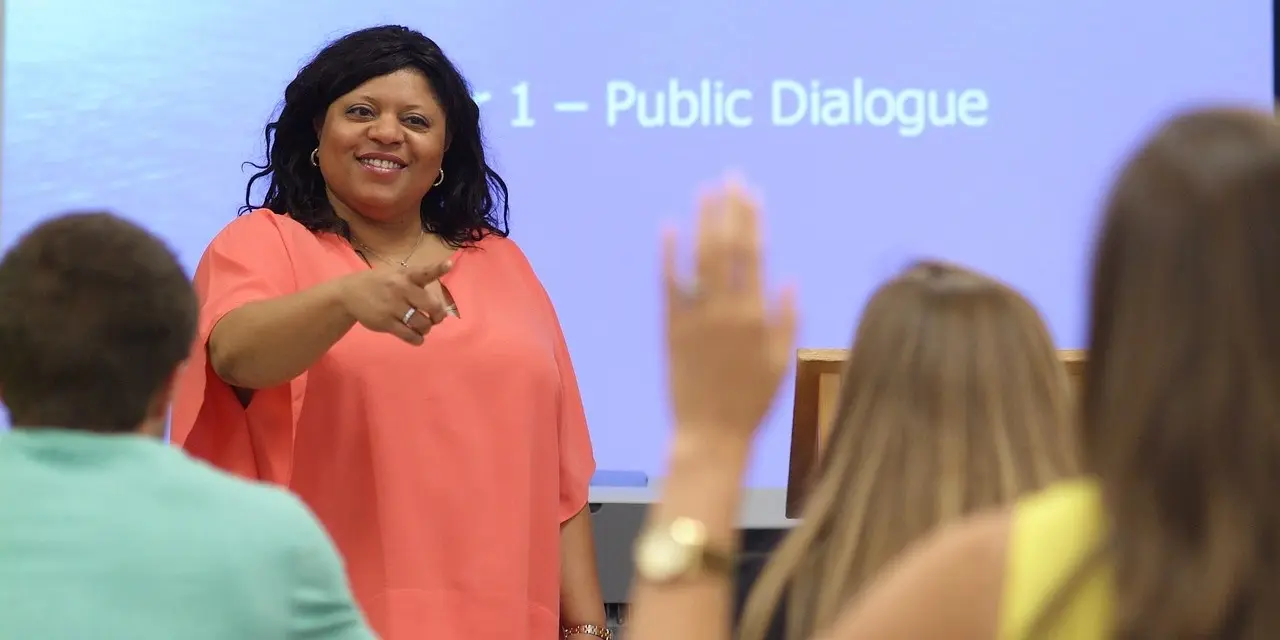By Mark Erlandson
Mark Erlandson, the parent of a gifted student who presently attends a boarding school out East, is a former lawyer and public high school English teacher from Wisconsin starting a new business as a legal writing consultant.
Sad as it may be for some (including teachers), the summer is over, and a new school year looms. To make sure you start off the year right, here is some advice for students from a veteran teacher, although parents would do well to follow most of it too.
1. Reserve judgement.
Reserve judgment – about the teacher, about the class, about the curriculum. Things rarely turn out to be as bad as they seem at the beginning. For example, generations of teachers have been taught to start the year off being strict and then loosen up over time. It’s a lot easier to keep control doing it that way.
2. Give me a chance.
Wait a couple weeks before approaching me about changing my curriculum or policies. First of all, there is so much work for me to do to start the year – from filling out forms to making seating charts to decorating my room to learning names of students – that I am overwhelmed and stressed out. Let me settle in. (Also see #1 above.)
3. Do your homework.
No, I don’t mean the daily or weekly assignments that you are already doing. You know that. What I mean is that if you want me to let you out of an assignment or give you an opportunity to complete an alternative assignment, know the following before you approach me:
- Is it practice or evidence? Practice means you are doing it to prepare to master a subject or skill; evidence means I am using it to assess whether you have mastered it (and then putting a grade in the gradebook). I have much more leeway with practice than I do with evidence;
- What is the goal or objective of that part of my curriculum? Nowadays, that usually is tied in some way to a Common Core State Standard (CCSS). Often it is explained as a “learning intention” or “learning target” at the beginning of a unit or a daily lesson. Ironically, the standardization of the curriculum through the CCSS actually allows me more freedom to personalize assignments as long as the standard’s content or skill is covered;
- What you would suggest as the lesson’s alternative? Don’t leave it up to me to brainstorm another way of meeting the standard. I already did, and what I came up with is what you are trying to get away from doing. I may know some alternative suggestions to give you, but you are much more likely to get what you want if you already have a plan when you approach me;
- What would you suggest as a rubric? Most assignments/assessments require that I use a scoring guide to grade. Can we use the same one that is being used for the original assignment/assessment? Tweak it somehow? Think about this ahead of time and be prepared to offer a new one if necessary.
4. Try to look at it from my side.
Unfortunately, this world is not ideal. I have a boss (actually bosses), and whether the assistant principal, the principal, the school superintendent or the school board, they all make various demands of me that limit what I can do for you. Also I have limited time and resources. I have a life. In a perfect world, I would be able to meet all of your demands and expectations. Unfortunately we live in this one. Try not to take it personally.
5. Don’t hate me.
It is very possible that we may not get along together. Sometimes personalities clash. It doesn’t mean I don’t like you or will grade you harder than someone else. Before you try to get out of my class or give up trying in class because you don’t like me, realize that life, or the real world, will require you to work with peers, bosses, clients, or customers who you may not like but have to deal with anyway. Start working on those skills. Try some of the following:
- Talk to your classmates about your feelings and ask them for tips on how they get along with the teacher;
- Meet with the teacher and voice your feelings, e.g., “I feel like you are annoyed when I ask extra questions. Is there another way you want me to do that?”;
- Meet with a guidance counselor. He/she may be able to offer advice and tips on how to get along with that particular teacher or how to get along with teachers in general;
- Focus on the subject, not the teacher. We can learn a lot about a subject from a knowledgeable teacher we dislike. Pay attention to the message and not the messenger.
- Finally, if all else fails, and you still think your learning is being negatively affected by your relationship with the teacher, then let your parents take the next step and contact the teacher.
6. Be a person, not just a student.
By that, I mean say “Hi” to me, make eye contact with me whether in the classroom or in the hallway when we pass, maybe ask me about my weekend some time before class or how I am doing today. I am a person too, and sometimes it’s lonely being a teacher.
Have any of these tips been particularly helpful? What other tips do you have to help students start the school year off right? Please share in the comment section below.
Like this post? Sign up for our email newsletter to receive more information and resources about gifted youth straight to your inbox.

